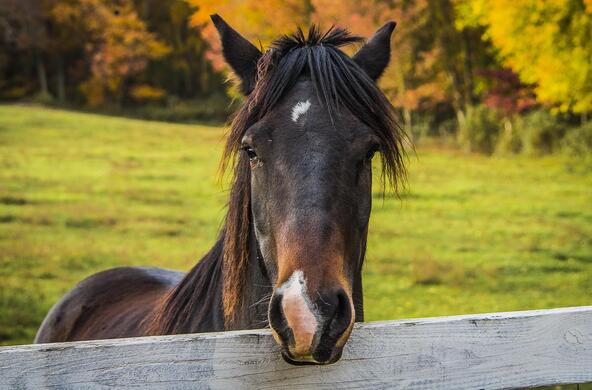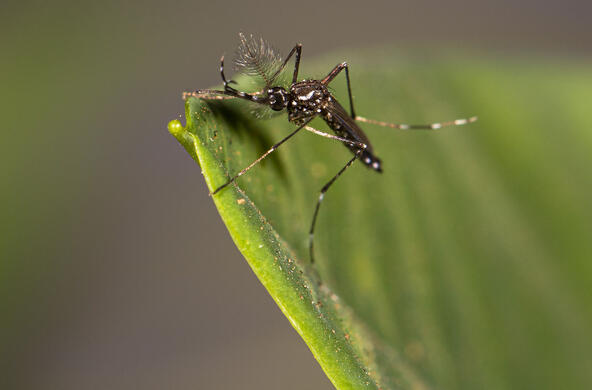Mosquitos have been eating up summertime Chi just like the rest of us.
The pesky little creatures prefer temperatures between 50–95 degrees Fahrenheit with an average relative humidity of 42 percent or higher, according to an analysis from Climate Central, a non-profit news organization.
Chicago’s weather has fallen within these parameters almost every day in July, according to daily weather reports.
Historically, Chicago hasn’t been a hub for tiny blood suckers because the city’s long, dreadful winter provides a “hard reset on the mosquito population,” said Shannon LaDeau, a senior scientist at the Cary Institute of Ecosystem Studies.
As temperatures warm globally and Chicago’s winters become milder, mosquito season is lengthening. Plus, the warmer weather actually allows the bugs to reach adulthood faster, meaning they have more time to reproduce and their population increases more quickly.
“Because mosquitos are ectotherms, everything about their physiology is temperature-dependent,” LaDeau said. “Warmer temperatures speed up their growth and their replication of viruses.”
Mosquitoes appreciate our weather conditions and are getting better at adapting to city life, LaDeau said. Chicago had 26 more “mosquito days” in 2022 than it did in 1979, the report showed.
“Urban mosquitos are largely invasive species,” LaDeau said. “Mosquitos that emerge from standing water in a tire someone left on the side of the road have gotten adept at surviving urban areas and it gives them very close access to humans.”
Other areas, particularly in the South where temperatures frequently exceed 95 degrees, are seeing fewer mosquitos because its too hot for them there nowadays, LaDeau said.
“Even though mosquitoes are running up against a wall where some areas are too hot for their physiology, the unfortunate truth is that the mosquitos will adapt to it much quicker than humans will,” LaDeau said.
For the most part, Chicago’s mosquitos can be relatively harmless nuisance although Illinois does see occasional cases of the West Nile Virus. The virus spreads when mosquitos bite birds and catch the virus, then go on to bite humans, LaDeau said.
“Luckily, it’s a really low probability series of events because mosquitos that come in contact with birds aren’t usually coming into contact with humans,” LaDeau said. “But if you have more time in the season for that to occur and you have more mosquitoes around, then the probability of that disease spreading is going to increase.”
One of the best ways to avoid mosquitoes is to make sure they’re not breeding near your home, LaDeau said.
Mosquitos are born in standing water and it usually takes them about a week or two to reach adulthood, LaDeau said. If the water has any predators — like fish, frogs or other insects — the mosquito larvae won’t stand a chance.
“Anything that lives in water is way more effective at killing mosquitos than anything you could do,” LaDeau said. “But most mosquitos in the city are coming from standing water that we don’t think of as standing water, like water pooled in garbage cans or gutters or tire swings or ephemeral water like puddles and storm water.”
If you can’t remove the water, there are bacterial treatments you can use to kill mosquitos but that usually kills their predators, as well, LaDeau said.
“If you inadvertently kill the other insects with those chemicals, the mosquitos will be back as soon as it rains again and there won’t be anything else to control them so you’ll have to keep treating the water,” LaDeau said.
Wearing long sleeves and applying insect repellant can help keep mosquitos away in areas where you can’t control their presence, LaDeau said.
If you do get bit and can’t stop itching, dermatologists can prescribe a topical steroid that can help heal the bite and prevent itching, said Dr. Parul Goyal, a dermatology professor at RUSH University Medical Center.
Hydrocortisone cream is a similar medicine that helps with itching and can be picked up over the counter, Goyal said.
People have found success treating bites by placing pimple patches on bites because they can help “dry up” the bite and provide a “physical barrier” that prevents you from scratching, Goyal said.
“It’s okay to let mosquito bites be and let them run their course, but it just depends on how bothered you are by them or how disruptive they are,” Goyal said.









